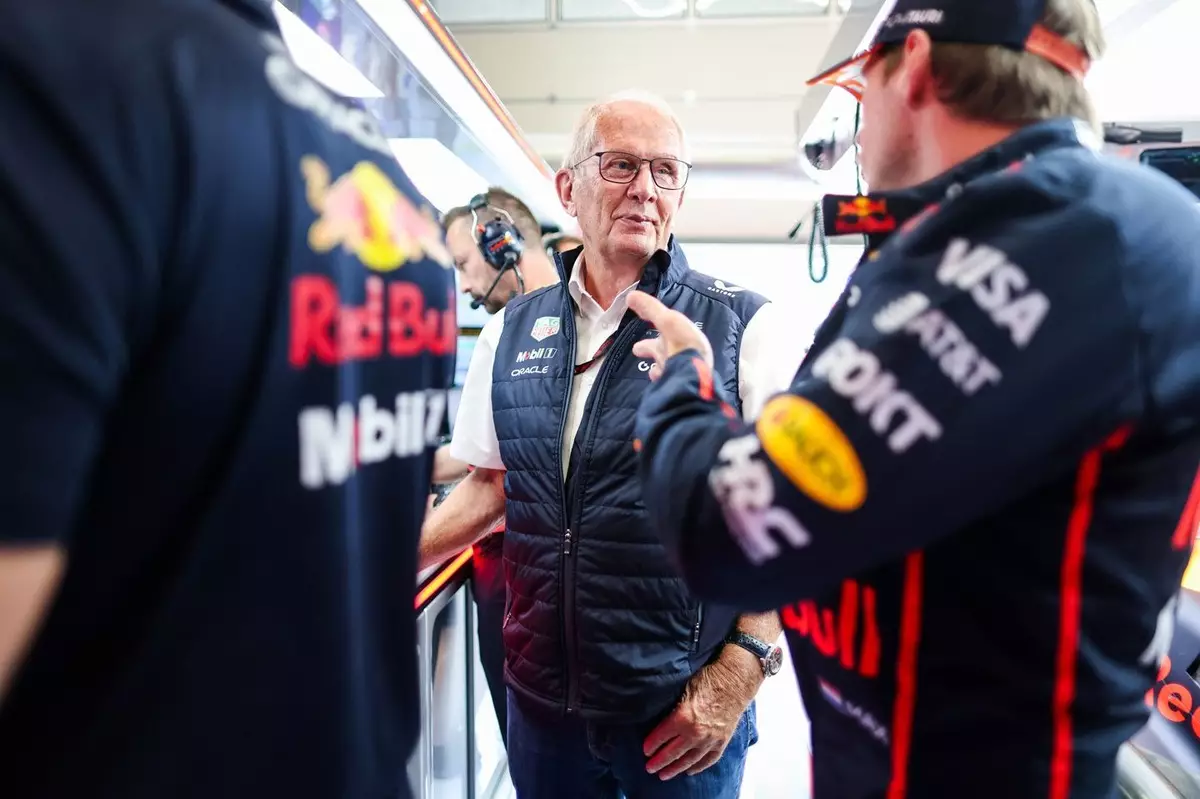Max Verstappen’s recent performances reveal a disturbing trend that signals possible tremors beneath the surface of his otherwise dominant career. After a disappointing exit at the Austrian Grand Prix—his first retirement in a race that was arguably his worst in recent memory—the implications extend beyond mere points loss. His crash and subsequent absence mark a shift from consistency to vulnerability, prompting questions about his mental resilience and future at Red Bull. Such setbacks are pivotal; they expose cracks in what traditionally has been an invincible veneer, especially for a driver whose success has been largely fueled by mental toughness and technical excellence.
Diving deeper, Verstappen’s frustrations are evident—not just in the race results but also in his nonchalant responses surrounding contract discussions. His vague, dismissive comments about his future indicate underlying uncertainty. When a four-time world champion declines to confirm loyalty with a simple, almost dismissive remark, it signals that internal tensions might be simmering beneath the surface. This is not typical of Verstappen’s usually resolute demeanor but a testament to the mounting pressure he faces, both internally stemming from recent performances and externally from the evolving landscape of F1’s competitive environment.
Red Bull’s Strategic Position: Confidence or Complacency?
Despite the turbulence, Red Bull remains outwardly confident in its commitment to Verstappen, with Helmut Marko asserting that contractual exit clauses are not a concern. However, odds are that the team’s narrative is carefully crafted to maintain stability and avoid unnecessary panic amid the fans and media. Marko’s insistence that “there is no reason to worry,” while reassuring externally, reveals a subtle awareness of the fragile equilibrium the team must uphold internally.
Red Bull’s resilience this season is noteworthy; they are undeniably a powerhouse—yet their recent slump in results, including ending a 77-race points streak and falling behind in Constructors’ standings, signals that even the most dominant teams can unravel if internal confidence wanes. The team’s unwavering support for Verstappen—despite his struggles—indicates a strategic choice to hold the line rather than dismantle their proven formula. However, one must question: how long can they sustain this loyalty if results don’t improve?
The contractual safety net, with clauses allowing Verstappen to exit if performance standards aren’t met, looms as a potential ace in the sleeve of the driver. Such clauses create an inherent tension: while they protect Verstappen’s autonomy, they can also be used as leverage, or conversely, spark career upheavals if either party believes the partnership no longer serves their interests. This strategic ambiguity—ballasted on both technical performance and psychological endurance—could shape the future of F1’s most promising talent.
The Power Dynamics Between Driver and Manufacturer
Verstappen’s vague statements about his future underscore a critical shift in F1 power dynamics. Traditionally, top drivers are seen as loyal and committed, but modern sport is increasingly driven by contractual clauses and mutual self-interest. The Dutch star’s hesitance in affirming his allegiance echoes a broader industry trend: drivers now hold significant leverage, especially when their contract contains exit options.
His reluctance to clarify his intentions during media interactions reveals a deeper understanding that his value isn’t solely in his talent but also in his marketability and bargaining power. The implications are profound—teams must grapple with a scenario where a driver’s future is subject to subtle negotiations rather than clear-cut commitments. As such, Verstappen’s situation isn’t just about immediate race performances; it’s about the unseen negotiations that occur behind closed doors.
This ambiguity can either be a strategic advantage or a source of instability. If Verstappen considers other options, or if Red Bull perceives the risk of losing him as manageable, the entire strategic approach of the team could shift. The current narrative, supported openly by Marko, aims to project stability, but the underlying currents suggest a man thus far unbound by traditional loyalty, capable of making bold moves when the conditions are right.
The unfolding season is a crucial test of resilience for both Verstappen and Red Bull. The Dutch driver, once seemingly invincible, now faces questions about his mental fortitude amid poor results and contract uncertainties. Conversely, Red Bull’s outward confidence masks an internal awareness that the landscape of Formula 1 is inherently volatile, driven by performance, politics, and personal ambitions.
Ultimately, the fragile equilibrium they maintain could crumble at any moment if either side perceives a better opportunity elsewhere. Whether Verstappen’s current dissatisfaction will translate into an early exit remains to be seen, but the situation illustrates a fundamental truth about racing’s high-stakes nature: even the most dominant figures are only as secure as their latest performance—and the strength of their negotiations behind closed doors.

